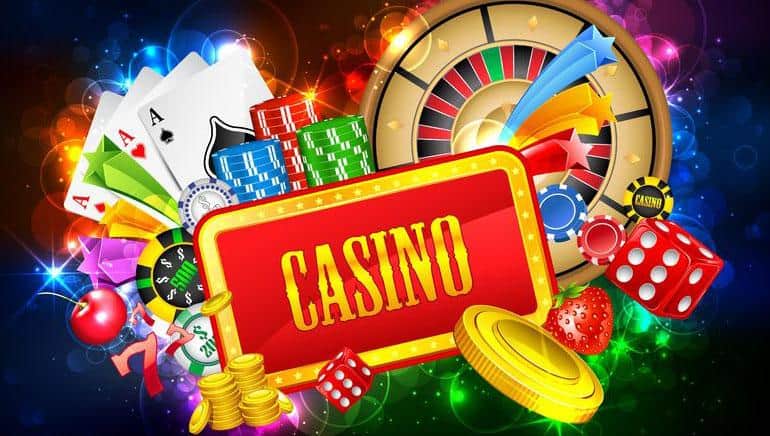
Gambling games have long been a engaging form of entertainment, drawing countless of players from different cultures around the globe. From the glitzy casinos of Las Vegas to the thriving gambling halls of the Chinese gambling capital, these games serve as a common thread that connects people across a variety of backgrounds. The allure of fortune, strategy, and uncertainty entices not only those seeking to gamble for profit but also those looking for a shared experience.
The significance of casino games extends significantly past the gaming floor. They often embody the social norms and traditions of the communities in which they flourish. Games such as poker, blackjack, and roulette have woven themselves into the fabric of mainstream culture, influencing multiple fields from films to style. As we explore this fascinating intersection of chance and society, we can better understand how casino games shape and are affected by the world around us.
Historical Development of Gaming Games
The roots of casino games can be tracked back to ancient cultures, where betting in multiple forms was widely practiced. In Ancient China, around 2300 B.C., a form of gambling known as Keno was common, while in ancient the Roman Empire, soldiers would often bet on the results of their games. The idea of using luck for fun and income progressed over the centuries, leading to the establishment of more structured games. By the late Middle Ages, betting houses started to appear in European nations, especially in Italy, which presented early versions of famous games still played today.
As gambling gained recognition in the continent, the 17th and 18th centuries saw the appearance of casinos as exclusive locations for betting. The earliest official gaming venue, the Ridotto, was set up in Venice in sixteen thirty-eight, offering activities like Baccarat games and Faro. This era marked a crucial pivoting point, as casinos commenced to welcome not just the wealthy but also the expanding middle class. The refinement of activities grew, leading to the creation of new guidelines and modifications that improved the play experience.
In the 19th century, the era of industrialization and transformations in societal standards further altered the terrain of gambling games. The arrival of roulette and contemporary gaming machines attracted a broader audience, and casinos became seen as legitimate forms of fun. This era witnessed the international spread of gaming, as casinos extended from the continent to the Western Hemisphere, culminating in the creation of the famous Strip of Las Vegas in the 20th century. The development of gaming games has persisted into the modern era, integrating modern technology and online services, making them available to a worldwide audience.
### Cultural Significance in Different Societies
Gambling games have significant cultural and social value within a multitude of cultures throughout the globe. For instance, in Las Vegas, the very core of the city is woven around gaming venues, where playing is not just a hobby but a key aspect of leisure and social interaction. The dazzling lights and dynamic atmosphere attract a vast audience, showcasing how games of chance can impact local economies and cultural identities. This environment transforms the notion of leisure into an engaging encounter that affects apparel, melodies, and even movies.
On the other hand, some communities treat betting with more caution, seeing it through the lens of ethical beliefs and tradition. For instance, in numerous Eastern communities, games like Mahjong and Pai Gow Poker are full of history and carry significant social meanings. These games are often played during get-togethers and festivities, fostering collective connections and solidifying familial ties. The act of playing these games goes beyond mere entertainment, reflecting values such as honoring elders and the value of communal fun.
Simultaneously, in European countries such as Monaco and Rome, gambling activities serve as symbols of opulence and refinement. The elegant atmosphere of these venues attracts both visitors and residents, upholding a sense of distinction and rarity. The art of Texas Hold’em and the tactical components of games like the game of baccarat are esteemed, molding social dynamics and creating an attraction that captivates a heterogeneous audience. This underscores how gambling can simultaneously echo and influence cultural perspectives towards hazard, benefit, and relationship building.
Financial Influence and Travel Industry
Casino games play a important role in the economic landscape of many regions, particularly those that depend significantly on tourism. The revenue generated from casino operations fuels local economies, creating employment opportunities not only within the casinos but also but also in connected industries such as hospitality, dining, and entertainment. This surge of tourists, drawn by the attraction of games and the overall casino experience, stimulates spending across multiple local enterprises, contributing to the economic vitality of the region.
The presence of casinos often leads to the development of facilities, including lodging, transportation systems, and leisure amenities. Ae888 These improvements are essential in improving the overall visitor satisfaction, making destinations more appealing to tourists. Additionally, many casinos invest in local communities through sponsorship of activities and charitable activities, further embedding themselves into the community structure of the locality. Such contribution not only supports economic growth but also cultivates a positive reputation of the gambling sector.
Moreover, the global popularity of casino games drives competitive tourism, with locations vying to attract gamblers from around the world. Khuyến mãi Ae888 Iconic locations like Las Vegas and Macau have become synonymous with gambling culture, drawing millions each year. This advantage encourages innovation and variety within the gaming industry, influencing developments in leisure and accommodation that extend beyond their borders. The ripple effects of this visitor influx extend wide, impacting local economies and cultural exchanges on a worldwide scale.
